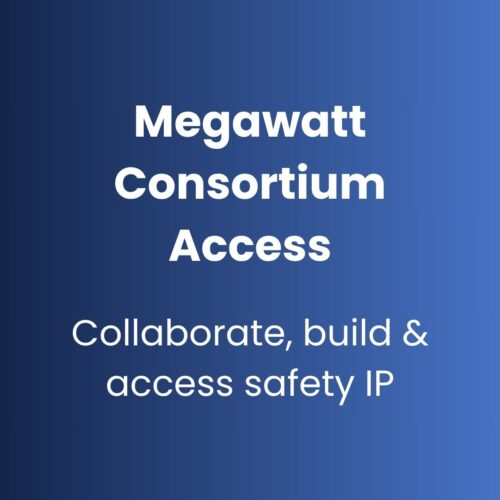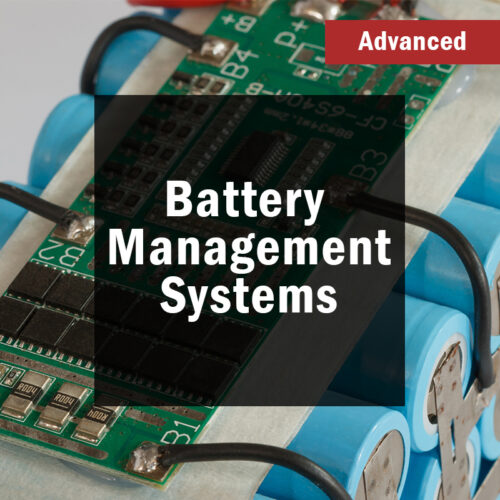- Attend monthly project reviews
- Receive monthly interim reports
- Provide input into the project execution, including tests performed
- Includes 1 year of Megawatt-level Soteria BIG access for new members, or $1,000 credit towards existing membership
-
 Participant-level access to the Soteria Consortium E-Bike Best Practices Project
Participant-level access to the Soteria Consortium E-Bike Best Practices Project -
 The E-Bike Batteries: Design Guidelines for Safety is a comprehensive standard developed by Soteria and industry partners to define best practices and advanced features for safer e-bike battery packs. It provides practical guidance for manufacturers and auditors to design, evaluate, and certify packs that exceed today’s baseline safety levels.
The E-Bike Batteries: Design Guidelines for Safety is a comprehensive standard developed by Soteria and industry partners to define best practices and advanced features for safer e-bike battery packs. It provides practical guidance for manufacturers and auditors to design, evaluate, and certify packs that exceed today’s baseline safety levels. -
 This course introduces essential safety aspects of battery manufacturing, testing, storage, handling, and disposal. It covers administrative and engineering controls, risks and hazards, mitigation, and safety compliance across all phases of the battery lifecycle. Participants will learn to recognize appropriate safety measures, use personal protective equipment (PPE) effectively, and identify key regulations to maintain safety standards and compliance. In addition, emphasis is given to the importance of personal responsibility for safety at all levels of the workplace and throughout the battery lifecycle.
This course introduces essential safety aspects of battery manufacturing, testing, storage, handling, and disposal. It covers administrative and engineering controls, risks and hazards, mitigation, and safety compliance across all phases of the battery lifecycle. Participants will learn to recognize appropriate safety measures, use personal protective equipment (PPE) effectively, and identify key regulations to maintain safety standards and compliance. In addition, emphasis is given to the importance of personal responsibility for safety at all levels of the workplace and throughout the battery lifecycle. -
 Sponsor-level access to the Soteria Consortium E-Bike Best Practices Project
Sponsor-level access to the Soteria Consortium E-Bike Best Practices Project- Listed as a Sponsor on the website and the final report
- Attend monthly project reviews
- Receive monthly interim-reports
- Provide input into the project execution, including tests performed
- Given a comment period after the reports are produced to provide input and improve reports before publication
- Includes 1 year of Megawatt-level Soteria BIG access for new members, or $2,000 credit towards existing membership
-
 This mini-certificate discusses different methods for battery testing. The importance of testing, related standards, needed testing infrastructure and analysis tools are individually tackled. This series also highlights how the output of battery testing is viable for battery modelling that supports the battery use phase and can possibly be implemented on battery management systems.
This mini-certificate discusses different methods for battery testing. The importance of testing, related standards, needed testing infrastructure and analysis tools are individually tackled. This series also highlights how the output of battery testing is viable for battery modelling that supports the battery use phase and can possibly be implemented on battery management systems. -
 This mini-certificate explains how a lithium-ion cell can be designed, sized, and produced for a specific capacity and energy. The key steps in the selection and production of the main components of the cell, i.e. electrodes, separator, and electrolyte, are discussed. The slurry formulation, mixing, coating, drying, calendaring, cutting, stacking, electrolyte formulation/injection, sealing/packing, and formation cycles are detailed both in terms of machineries and the processing parameters.
This mini-certificate explains how a lithium-ion cell can be designed, sized, and produced for a specific capacity and energy. The key steps in the selection and production of the main components of the cell, i.e. electrodes, separator, and electrolyte, are discussed. The slurry formulation, mixing, coating, drying, calendaring, cutting, stacking, electrolyte formulation/injection, sealing/packing, and formation cycles are detailed both in terms of machineries and the processing parameters.







